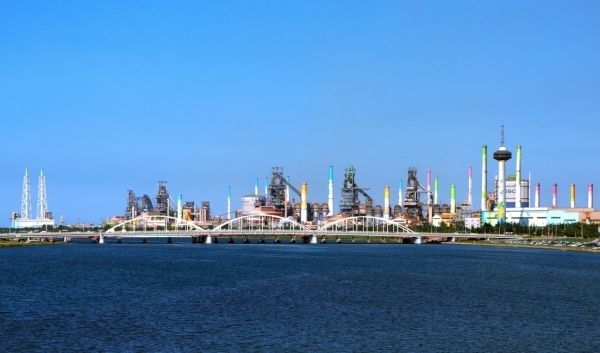Steel industry beset by tougher environmental regulations
By Shin Ji-hyePublished : June 9, 2019 - 15:24
South Korea’s increasingly stringent environmental regulations are hobbling its steel industry, already beset by falling sales and rising raw material prices.
Last week, three regional governments representing South Chungcheong Province, North Gyeongsang Province and South Jeolla Province insisted that local steel companies Posco and Hyundai Steel halt their steel mills for 10 days over violations of the Clean Air Conservation Act.
Last week, three regional governments representing South Chungcheong Province, North Gyeongsang Province and South Jeolla Province insisted that local steel companies Posco and Hyundai Steel halt their steel mills for 10 days over violations of the Clean Air Conservation Act.

The provincial governments said Posco’s steel mills in Gwangyang and Pohang cities and Hyundai Steel’s plants in Dangjin city had opened safety valves, called bleeder valves, in the process of maintaining their blast furnaces, which resulted in the emission of pollutants into the air.
The rare decision by the local authorities came after an authoritative interpretation of the law from the central government, which said the air pollution that hit the nation hard in recent years may have been made worse by the practice of opening blast furnaces -- a routine operational procedure for steelmakers.
Immediately, the Korea Iron & Steel Association released a statement saying there was no global precedent for the imposition of regulations on the practice of opening blast furnaces, and that the administrative order could cause serious damage to steelmakers’ business operations. “If steel mills are closed for 10 days, it takes more than six months to resume the plants. This will cause losses of 800 billion won ($674 million) for each mill.”
The Posco branch of the Korean Confederation of Trade Unions said “the closure of operation will disrupt the foundation of the Korean industry.”
Despite the industry’s resistance, the nation’s environmental regulations are expected to get stricter as a result of growing calls to address air pollution and climate change at home and abroad.
Early this month, President Moon Jae-in said the nation intended to cut fine dust emissions by more than 30 percent by 2022, compared with 2016 levels. He said the government was making efforts to improve plants and other facilities that emitted high concentrations of fine dust.
“I agree on the importance of environmental regulations. But if the government pushes ahead with the plans without a sufficient grace period, companies may have to inevitably violate laws and lose competitiveness,” said an official with one of the large steel companies in Korea, speaking on condition of anonymity.
Steel companies are already ramping up their efforts to invest in environmental protection in line with government policies to go green. The steel industry plans to invest more than 1.5 trillion won in air pollution prevention facilities by 2021, according to Posco CEO Choi Jeong-woo in a speech during the Day of Steel last week.
Environmental regulations are emerging as another factor in stunting a domestic steel industry that is already beset by growing protectionism, rising raw material costs and falling demand.
In the first quarter of this year, the average selling price of iron ore, a key raw material for steel, rose 13.8 percent to $97.84 per metric ton, from $70 in the fourth quarter of last year, due to supply issues in Brazil and Australia, two of the largest iron ore producers.
In the January-March period, the nation’s key steelmakers posted weak earnings. Posco’s operating profits went down 19 percent from the same period last year, while Hyundai Steel saw its operating profit decline 27.6 percent during the same period.
By Shin Ji-hye (shinjh@heraldcorp.com)







![[KH Explains] Hyundai's full hybrid edge to pay off amid slow transition to pure EVs](http://res.heraldm.com/phpwas/restmb_idxmake.php?idx=644&simg=/content/image/2024/04/18/20240418050645_0.jpg&u=20240419100350)







![[From the Scene] Monks, Buddhists hail return of remains of Buddhas](http://res.heraldm.com/phpwas/restmb_idxmake.php?idx=652&simg=/content/image/2024/04/19/20240419050617_0.jpg&u=20240419175937)

![[KH Explains] Hyundai's full hybrid edge to pay off amid slow transition to pure EVs](http://res.heraldm.com/phpwas/restmb_idxmake.php?idx=652&simg=/content/image/2024/04/18/20240418050645_0.jpg&u=20240419100350)

![[Today’s K-pop] Illit drops debut single remix](http://res.heraldm.com/phpwas/restmb_idxmake.php?idx=642&simg=/content/image/2024/04/19/20240419050612_0.jpg&u=)